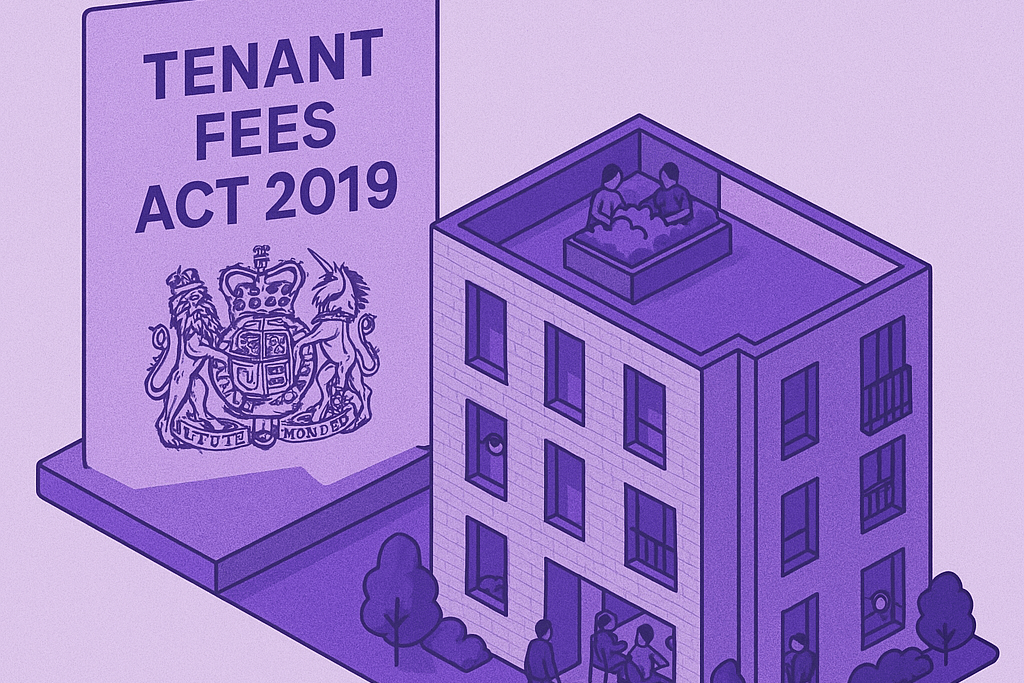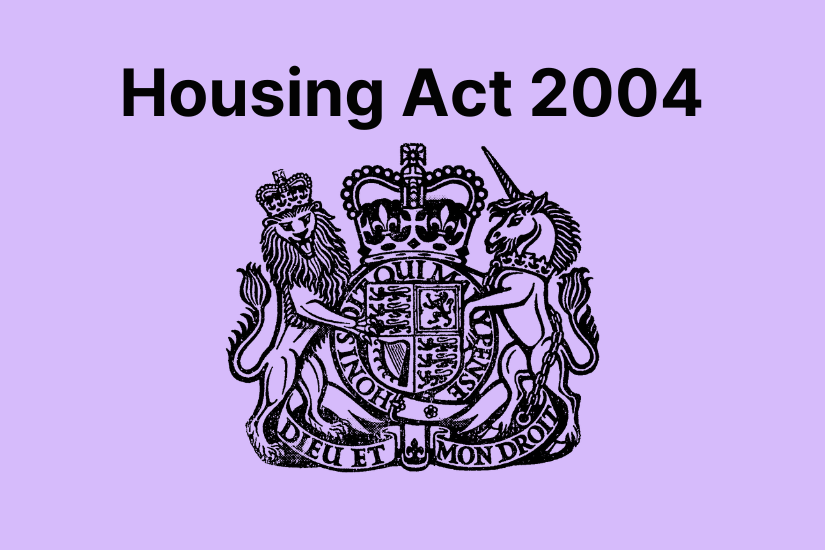Renting out HMOs has become a smart strategy for landlords looking to maximise income, with over 500,000 licensed HMOs now operating across England and Wales. Some might think you can just hand over the keys and sit back. In reality, a single missed regulation could land you with an unlimited fine or even a criminal conviction. The real edge goes to landlords who master the legal details that most others overlook.
Table of Contents
- Understand Local Hmo Licensing Requirements
- Ensure Safety and Fire Regulations Are Met
- Draft Clear Tenancy Agreements For Tenants
- Regularly Check For Property Maintenance Needs
- Understand The Importance Of Deposit Protection
- Familiarise Yourself With Eviction Procedures
- Stay Updated On Changes To Hmo Regulations
- Consult Legal Experts For Compliance Guidance
Quick Summary
| Takeaway | Explanation |
|---|---|
| Understand local HMO licensing regulations | Each council has unique HMO licensing requirements, making research essential for compliance. |
| Ensure adherence to safety and fire regulations | Compliance protects tenants and landlords; regular assessments are critical for legal protection. |
| Draft clear tenancy agreements | Well-defined agreements reduce misunderstandings and outline responsibilities for all tenants. |
| Prioritise regular maintenance checks | Scheduled inspections prevent costly repairs and help maintain tenant safety and contentment. |
| Utilise professional legal consultation | Legal advice safeguards against non-compliance and helps navigate evolving HMO regulations. |
1: Understand Local HMO Licensing Requirements
Navigating the complex landscape of HMO licensing requires meticulous attention to local regulations. Landlords must recognize that HMO licensing is not a uniform process across different local authorities. Each council implements its own specific requirements, making comprehensive research crucial for legal compliance.
Understanding the core licensing criteria involves several critical considerations. According to UK Government Housing Guidelines, HMO licensing typically encompasses:
- Properties housing 5 or more occupants from multiple households
- Shared facilities like kitchens and bathrooms
- Specific safety and management standards
The licensing process demands landlords demonstrate their property meets stringent health and safety regulations. Local authorities will assess multiple factors during the application, including:
- Property size and layout suitability
- Fire safety provisions
- Adequate amenity standards
- Proposed management arrangements
Most local councils require landlords to obtain a licence valid for 3-5 years, with fees varying significantly between regions. Failing to secure the appropriate licence can result in substantial financial penalties, potentially reaching unlimited fines.
Property investors must proactively engage with their local housing authority to understand precise licensing requirements. Detailed documentation, including floor plans, safety certificates, and management protocols, will be essential for a successful application.
Remember that licensing requirements can change, so staying updated with the latest regulations through official sources is paramount for maintaining legal compliance in your HMO property management strategy.
2: Ensure Safety and Fire Regulations are Met
Safety and fire regulations represent a critical cornerstone of responsible HMO property management. Compliance is not optional but a legal requirement that protects both tenants and property owners from potential catastrophic consequences.
According to Fire Safety Regulations, HMO landlords must implement comprehensive safety protocols. These regulations mandate a robust approach to fire prevention and emergency preparedness.
Key safety requirements include:
- Installation of interconnected smoke detectors on each floor
- Clear and accessible fire escape routes
- Fire-resistant doors with appropriate self-closing mechanisms
- Emergency lighting in communal areas
- Annual professional fire risk assessments
Professional fire risk assessments are particularly crucial. These detailed evaluations identify potential hazards, recommend mitigation strategies, and ensure your property meets current safety standards. Assessments should be conducted by qualified fire safety professionals who understand the specific complexities of HMO properties.
Electrical safety represents another fundamental aspect of HMO regulations. Mandatory electrical installation condition reports must be completed every five years, with all identified issues promptly addressed. This includes comprehensive checks of wiring, sockets, fuse boxes, and electrical appliances provided within the property.
Additional critical safety considerations encompass:
- Regular gas safety certificates
- Carbon monoxide detector installations
- Robust maintenance schedules
- Detailed record-keeping of all safety inspections
Property owners must recognize that safety compliance is an ongoing commitment. Regulations evolve, and staying informed about the latest requirements is essential. Proactive management not only ensures legal compliance but also demonstrates a genuine commitment to tenant welfare.
Remember, cutting corners on safety can result in significant financial penalties, potential legal action, and most importantly, risk to human life.
3: Draft Clear Tenancy Agreements for Tenants
Crafting comprehensive and transparent tenancy agreements represents a fundamental legal requirement for HMO property management. Clear documentation protects both landlords and tenants, establishing explicit expectations and preventing potential disputes.
According to UK Government Housing Guidelines, tenancy agreements must articulate specific details about occupancy arrangements.
Key elements that must be meticulously documented include:
- Precise rental amount and payment schedule
- Duration of tenancy
- Individual and collective responsibilities
- Maintenance obligations
- Restrictions on property usage
Shared living arrangements in HMOs demand additional complexity in tenancy agreements. Unlike standard residential rentals, these documents must address unique challenges associated with multiple occupants sharing common spaces.
Specific considerations for HMO tenancy agreements encompass clear guidelines about:
- Shared facility usage protocols
- Noise restrictions
- Cleaning and maintenance responsibilities for communal areas
- Guest visitation policies
- Subletting restrictions
Legal professionals recommend developing separate room licences for each tenant, clearly delineating individual occupancy terms while simultaneously establishing collective responsibilities. This approach provides granular clarity and reduces potential conflicts.
Financial provisions require particular attention. Detailed documentation of deposit arrangements, including precise protection scheme details and potential deduction circumstances, helps prevent misunderstandings.
Proactive landlords should consider including clauses addressing potential scenario variations, such as unexpected tenant departures, shared utility management, and conflict resolution mechanisms. Professional legal consultation can help refine these complex contractual nuances.
Remember, a well-constructed tenancy agreement serves as your primary legal safeguard in managing multi-occupancy properties.
4: Regularly Check for Property Maintenance Needs
Prioritizing regular property maintenance represents a critical responsibility for HMO landlords. Proactive property management prevents costly repairs and ensures tenant safety. Neglecting maintenance can lead to significant financial and legal consequences.
According to UK Government Housing Guidelines, landlords must systematically address property maintenance issues to maintain legal compliance and tenant satisfaction.
Essential maintenance checks should encompass:
- Structural integrity assessment
- Electrical system inspections
- Plumbing and water system evaluations
- Heating and ventilation system reviews
- External and internal property condition analysis
Comprehensive maintenance strategies require structured scheduling and documentation. Professional landlords recommend developing a detailed maintenance calendar that outlines periodic inspections and potential intervention points.
Multi-occupancy properties demand more rigorous maintenance protocols due to increased wear and tear from multiple tenants. Key considerations include managing shared spaces and ensuring collective responsibility for property upkeep.
Critical maintenance documentation should track:
- Date of inspections
- Identified issues
- Repair timelines
- Contractor details
- Expenditure records
Tenants play a crucial role in maintenance reporting. Establishing clear communication channels for reporting potential issues can help identify problems early. Implement straightforward reporting mechanisms such as dedicated email addresses or online maintenance request systems.
Financial planning is integral to effective maintenance. Landlords should allocate a percentage of rental income towards a dedicated maintenance reserve fund. This approach ensures resources are available for unexpected repairs and prevents financial strain.
Remember, consistent maintenance is not just about preserving property value. It demonstrates professional management, supports tenant retention, and maintains your property’s compliance with HMO regulations.
5: Understand the Importance of Deposit Protection
Deposit protection represents a crucial legal obligation for HMO landlords, designed to safeguard tenant finances and ensure fair property management practices. Legal compliance is not optional but a mandatory requirement for all rental property transactions.
According to UK Government Tenancy Guidelines, landlords must place tenant deposits into an approved protection scheme within 30 days of receiving the funds.
Key aspects of deposit protection include:
- Mandatory registration with government-approved schemes
- Timely deposit protection within specified timeframes
- Providing tenants with prescribed information
- Maintaining transparent documentation
Failure to protect deposits can result in significant financial penalties. Landlords who do not comply may face legal consequences, including potential fines up to three times the original deposit amount and restrictions on serving eviction notices.
HMO landlords must choose between two primary deposit protection approaches:
- Custodial schemes (free deposit holding)
- Insured schemes (landlord retains deposit with scheme insurance)
Each protection scheme provides mechanisms for dispute resolution, ensuring fair treatment for both tenants and landlords. These schemes offer independent adjudication services to resolve potential conflicts regarding deposit returns.
Documentation plays a critical role in deposit protection. Landlords must provide tenants with comprehensive written information detailing the specific protection scheme, deposit amount, and terms of potential deductions.
Professional HMO managers recommend maintaining meticulous records of deposit transactions, including initial property condition reports, photographic evidence, and clear communication with tenants about potential deduction criteria.
Remember, deposit protection is more than a legal requirement. It represents a fundamental aspect of professional, transparent property management that builds trust with tenants and demonstrates commitment to ethical rental practices.
6: Familiarise Yourself with Eviction Procedures
Eviction procedures in HMO properties demand precise legal understanding and meticulous execution. Landlords must navigate complex legal frameworks to ensure lawful tenant removal. Improper eviction can result in significant financial penalties and potential legal repercussions.
According to UK Government Eviction Guidelines, landlords must follow strict protocols when seeking to remove tenants from their properties.
Critical eviction considerations include:
- Valid grounds for eviction
- Appropriate notice periods
- Proper documentation
- Legal notification procedures
- Court application processes
HMO properties present unique challenges in eviction scenarios. With multiple tenants potentially occupying different rooms, landlords must carefully distinguish between individual and collective tenancy agreements.
Legal grounds for eviction typically encompass:
- Persistent rent arrears
- Significant property damage
- Breach of tenancy agreement terms
- Anti-social behaviour
- Illegal activities within the property
Professional landlords recommend maintaining comprehensive documentation throughout the tenancy. Detailed records of communication, payment history, and incident reports strengthen potential eviction proceedings.
The eviction process requires landlords to serve precise legal notices. Section 21 (no-fault eviction) and Section 8 (breach of tenancy) notices have specific requirements and timelines. Incorrect service can invalidate the entire eviction process.
Financial implications extend beyond potential legal costs. Improper eviction can damage reputation, making future tenant acquisition challenging. Professional legal consultation is strongly advised to navigate these complex procedures.
Remember, eviction should be a last resort. Proactive communication and conflict resolution can often prevent the need for formal eviction proceedings.
7: Stay Updated on Changes to HMO Regulations
Navigating the dynamic landscape of HMO regulations requires continuous learning and proactive monitoring. Regulatory frameworks evolve rapidly, demanding landlords maintain a comprehensive understanding of emerging legal requirements.
According to UK Government Housing Guidelines, HMO regulations undergo frequent modifications addressing tenant safety, property standards, and landlord responsibilities.
Key strategies for staying informed include:
- Subscribing to official government housing newsletters
- Attending professional landlord network seminars
- Following reputable property law publications
- Connecting with local housing authority updates
Technological advancements and societal changes continually reshape regulatory expectations. Landlords must anticipate and adapt to emerging compliance requirements that address contemporary housing challenges.
Critical areas of regulatory focus typically encompass:
- Safety standards
- Tenant protection mechanisms
- Licensing requirements
- Environmental sustainability protocols
- Technological integration standards
Professional landlords recommend establishing a systematic approach to regulatory tracking. This involves creating a dedicated compliance calendar, scheduling periodic legal consultations, and maintaining flexible management strategies.
Financial implications accompany regulatory changes. Proactive adaptation can prevent costly retrospective modifications and potential legal penalties. Early identification of regulatory shifts allows strategic planning and incremental investment in property upgrades.
Consider engaging with professional bodies such as the National Residential Landlords Association (NRLA) for comprehensive insights and interpretative guidance on complex regulatory developments.
Remember, regulatory compliance is not merely a legal obligation but a fundamental aspect of responsible property management that protects both landlords and tenants.
8: Consult Legal Experts for Compliance Guidance
Navigating the intricate legal landscape of HMO property management demands professional expertise. Legal consultation is not an optional luxury but a strategic necessity for responsible property investors and managers.
According to UK Government Housing Guidelines, landlords must understand complex regulatory frameworks that govern property management.
Critical areas where legal experts provide invaluable guidance include:
- Interpretation of complex housing regulations
- Risk mitigation strategies
- Tenancy agreement development
- Dispute resolution mechanisms
- Compliance documentation
Professional legal consultation offers proactive protection against potential legal challenges. Experienced property law specialists can identify potential vulnerabilities in your HMO management approach before they escalate into costly disputes.
Key considerations when selecting legal expertise:
- Specialization in HMO property law
- Track record of successful landlord representations
- Understanding of local authority regulations
- Comprehensive compliance advisory services
- Transparent fee structures
Legal experts provide more than just reactive problem-solving. They offer strategic insights into emerging regulatory trends, helping landlords anticipate and adapt to changing legal landscapes.
Financial implications of legal non-compliance can be substantial. A single regulatory oversight could result in significant financial penalties, making professional legal consultation a prudent investment in long-term property management success.
Professional bodies like the National Residential Landlords Association (NRLA) can recommend qualified legal specialists with proven expertise in HMO property regulations.
The table below summarises the eight essential legal considerations for successful HMO management in 2025, highlighting key requirements and best practices for landlords.
| Legal Area | Key Considerations | Practical Actions & Benefits |
|---|---|---|
| Local Licensing Requirements | Regulations vary by council; research is vital for compliance | Engage with local authority, gather required documents, prevent heavy fines |
| Safety & Fire Compliance | Strict fire/electrical/gas regulations safeguard life and property | Annual fire risk assessments, safety upgrades, detailed record-keeping |
| Tenancy Agreements | Clear, detailed contracts manage shared space responsibilities | Outline terms, address communal areas, utilise legal advice to prevent disputes |
| Property Maintenance | Regular checks prevent costly repairs and legal breaches | Create inspection schedules, encourage prompt tenant reporting, document repairs |
| Deposit Protection | Legally required to use government-approved schemes within 30 days | Register deposits, provide info, maintain evidence to avoid penalties |
| Eviction Procedures | Adherence to strict legal frameworks to avoid fines or invalid evictions | Use correct notices, maintain records, consult legal expertise |
| Regulatory Updates | Laws change frequently, requiring ongoing vigilance | Subscribe to updates, attend seminars, maintain compliance calendar |
| Legal Expert Consultation | Professional guidance reduces risk of regulatory breaches | Engage HMO specialists, receive ongoing support, adapt to trends |
Remember, legal expertise is not an expense but a critical risk management tool that protects your property investment and professional reputation.
Ready to Simplify Your HMO Legal Compliance?
Staying compliant with every detail in your HMO legal checklist can feel overwhelming. Identifying the latest local licensing rules, fire safety standards, tenancy agreements and deposit protection requirements is not always straightforward. If you are feeling the pressure of keeping up with regulation changes or are unsure how to streamline documentation, you are not alone. Many HMO landlords and investors share these concerns highlighted in our essential tips article.

Do not risk costly mistakes or missed opportunities. Visit AgentHMO now to discover the UK’s most comprehensive HMO platform. Whether you need trusted estate agents, tailored property valuations, expert compliance support or industry connections, our directory will help you move forward with confidence. Start managing legal responsibilities with ease. Join our community of HMO professionals and take the next step today at https://agenthmo.co.uk.
Frequently Asked Questions
What are the key licensing requirements for HMO properties?
Landlords must understand that HMO licensing varies by local authority but generally includes properties housing 5 or more occupants from multiple households, shared facilities, and adherence to specific safety and management standards.
How often should fire safety assessments be conducted in HMOs?
Professional fire risk assessments should be conducted annually to identify potential hazards and ensure compliance with the Fire Safety Regulations for HMO properties.
What should be included in a tenancy agreement for HMO tenants?
A tenancy agreement for HMO tenants should clearly outline the rental amount, duration of tenancy, responsibilities regarding shared facilities, and details on maintenance and guest policies to prevent disputes.
Why is deposit protection essential for HMO landlords?
Deposit protection is a legal obligation that safeguards tenant finances. Landlords must register deposits in an approved scheme within 30 days to avoid significant penalties and ensure fair treatment in deposit deductions.



